Last week, I did an interview on Reddit.com, and some of the most popular questions that came up were about diet. How do you fuel your body to cover 31+ miles on foot? How do you keep your body healthy while running 20+ miles every day in training? Whether you’re preparing for an ultra-marathon or just trying to get fit and eat a bit healthier, here are a few things I’ve learned that I hope might help.
Training Fuel
For starters, your caloric intake should be proportional to the amount of exercise you’re currently doing. If you’re running upwards of 70 miles per week, you will definitely need to eat more than you would if you were only running twice per week. Generally speaking, your body is a pretty good judge of hunger; it will let you know when it is craving additional energy, and when it is satisfied.
As nutrition is a very young science with constantly changing norms (and even now, plenty of contradictory ideas), it is recommendable to take all these suggestion with a grain of salt. The following is just what I do and what makes me feel good on a day-to-day basis. Also, none of these suggestions are cut-and-dry; I violate all of these “rules” from time to time.
As quoted in the cult-classic Once A Runner by John L. Parker, “if the furnace is hot enough, anything will burn, even Big Macs”. While you are a young runner, yes, you can probably eat anything that you want and get away with it; however, it is best to eat a somewhat balanced diet, based around whole grains, produce, healthy fats, and lean proteins.
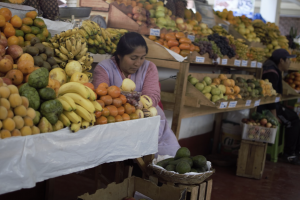
A local market in Pisac, Peru — similar to where we shop here in Quito, Ecuador
DO: eat produce. For instance, I personally strive to eat at least one (preferably two or more) servings of produce with every meal. Here in Ecuador, it is relatively easy to consume copious amounts of fruits and veggies, due to the availability and low cost-per-calorie. Some of my go-to foods are: banana and other tropical fruits with yogurt, broccoli and rice, carrot and beet soup… and pretty much any other food with color!
DON’T: rely on packaged foods. Additionally, I aim to avoid eating packaged foods — i.e. in general, I try to snack on things that didn’t come in a vacuum-sealed bag (think fruits, toast, etc.). Lastly, I steer away from foods with added sugar during a heavy training block. Although many sugar-dense foods are calorie rich (and I do burn plenty of calories each day), consuming high sugar desserts is not the most efficient way to refuel my body. Human bodies were not created to digest large amounts of sugar at once, so when I have a sugar craving (again, during a heavy training period), I first reach for a piece of fruit, as these natural sugars are easily digestible.
DO: eat food you like! All in all, I advise that you find nutritious foods that you like, and eat them on a regular basis! Eating certain foods is comparable to exercise, in that if you don’t like it, you will not stick with it. Just keep trying new foods until you find something that you enjoy!
Pre-Race Routine
The most important rule regarding race day fueling is: NEVER try anything new on race day. Always go with what you know!
DO: test your race-day fueling in practice.The most advisable thing to do is to test your pre-race meal before a workout or a long run. This way, you can see how certain foods affect your stomach while you’re running at an effort comparable to your upcoming race.
Before a long race, I try to eat a large, bland, carbohydrate-rich meal the night before; however, I never overeat to the point of uncomfortably full. The morning of, I eat according to my hunger levels, and never force feed myself. Sometimes I won’t eat anything solid, even before a marathon if my stomach doesn’t feel ready. Lastly, don’t forget to hydrate! You’ll use a lot of water — especially in a long race — even if it’s cold.
So what do I do specifically? Throughout the day leading up to a marathon or 50K, I drink plenty of water. The evening before, I eat an entire packet of potato gnocchi (almost 1000 calories) for dinner. The gnocchi is dense enough that I can eat a portion of this size without feeling sick to my stomach. If I’m still hungry before bed, I will snack on something bland — like animal crackers or pretzels. To help me fall asleep at a decent hour, I will sip a cup of Sleepytime tea.
The morning of the race, I only eat according to my hunger. As soon as I wake up, I brew a cup of black coffee, and eat a Nature Valley granola bar (roughly 250 calories). If I’m still hungry, I’ll eat some pretzels. On the way to the start line, I drink about 20oz of caffeinated nuun.
Race Day Rations
As I mentioned in the aforementioned section, never try anything new on race day! Figure out your fueling and hydration plan beforehand (look up what your race will be giving out in terms of drinks, gels, etc.) If you know that a particular gel works for you, carry them or tuck them in the liner of your shorts.
In terms of caffeine, there is plenty of research that supports caffeine as a legal performance supplement. Don’t experience with an extra strong cup of java on race day, but if it works for you in workouts, go for it!
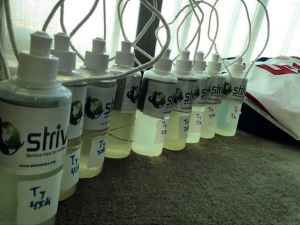
Here are the hydration bottles that I used during the 50K World Championship!
What exactly does my race day fueling entail?
For a marathon or 50K, I take one gel 15 minutes before the start, and then another gel every 10km (approximately every 32 minutes) after that until I reach the finish line. My hydration strategy is more by feel; during the 2018 Rock ‘n’ Roll DC Marathon, I didn’t drink any water during the race, as it was very cold and I didn’t feel like I needed it. In a cool race, I’m more conservative with consuming water as I don’t want to get a “sloshy tummy” — that’s the worst feeling!
Post-Race Refueling
Following a tough effort, it is important to RELAX and not worry about your diet or food cravings all of the time. After my big races, I take 1-3 weeks of no real structured training and consume whatever my heart desires (in terms of food and drink). Ice cream for breakfast? Sure!
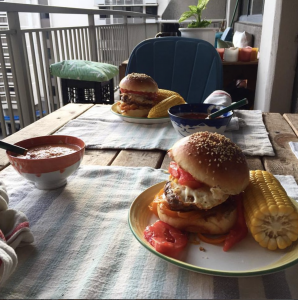
A good burger? Yes please!
The body and the mind need to work together; obsessing about food every day of the year can lead to serious problems. I personally recommend that you eat a balanced diet as a means to an end (running faster, healthier lifestyle), and then give yourself a reward occasionally.
Let me know! What do you like to eat before a race? What’s your fueling strategy for longer races? Leave your answer in the comments section below.
If you have a suggestion for any future Ty’s Tips posts, shoot me an email at tyler@strivetrips.org or leave a comment below.
Happy fueling!

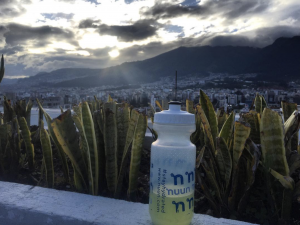
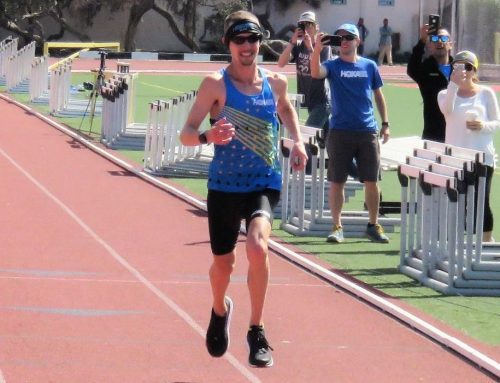
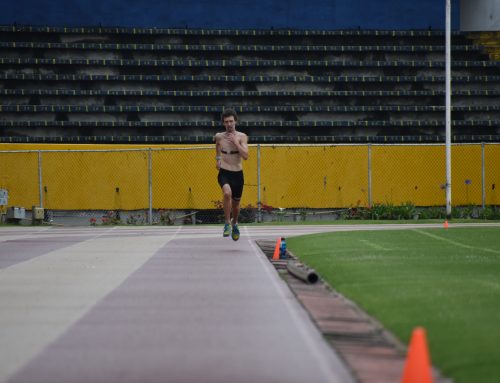
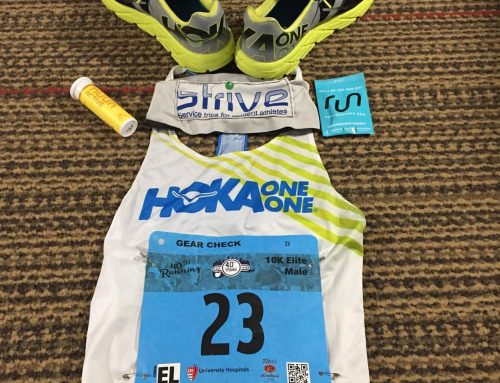
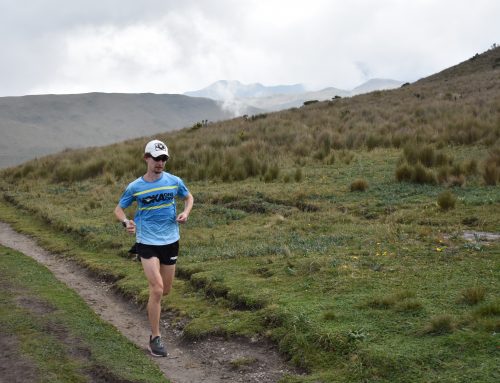
Leave A Comment